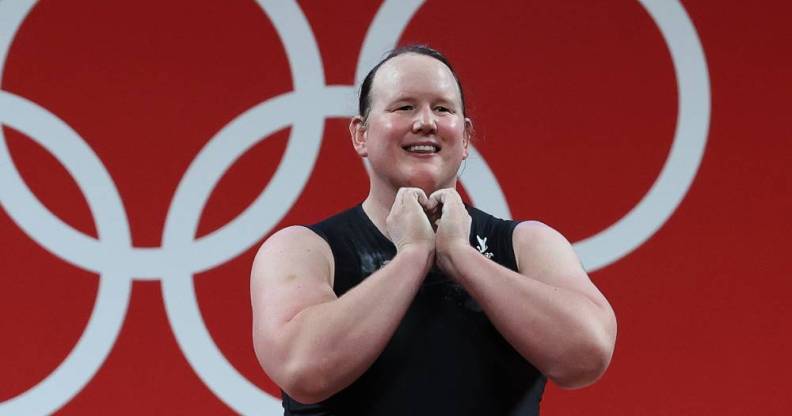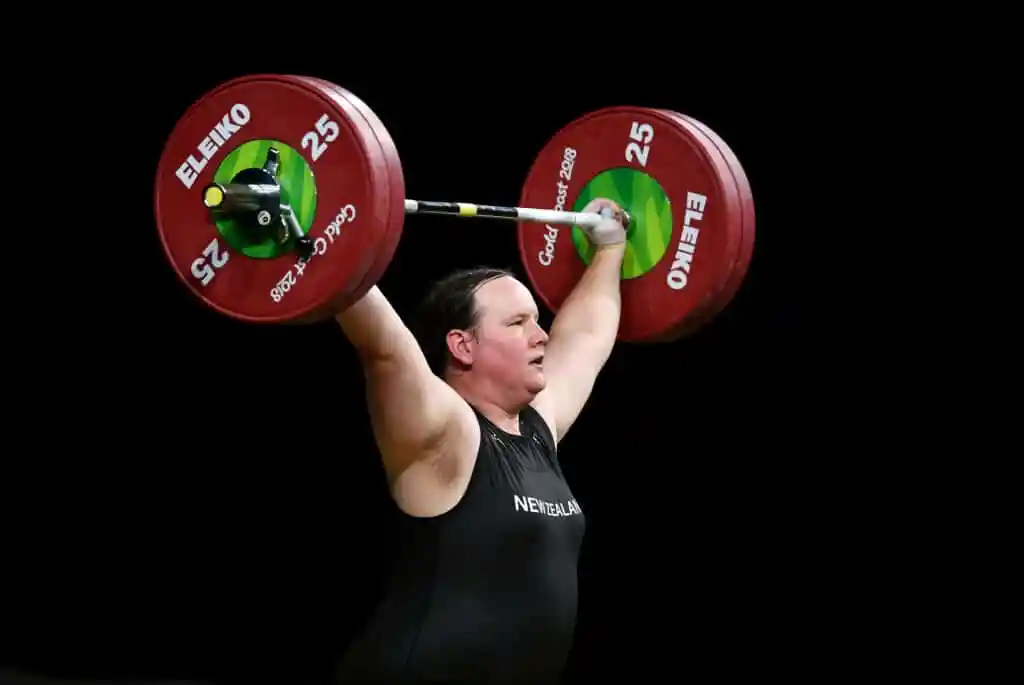BBC Sport takes a stand against transphobes targeting Olympian Laurel Hubbard: ‘Hate won’t win’

New Zealand’s Laurel Hubbard competes in the women’s +87kg group A final weightlifting event during the 2020 Tokyo Olympic Games. (Getty/Stanislav Krasilnikov/TASS)
BBC Sport has taken a stand against transphobic comments being left under its coverage of New Zealand’s Laurel Hubbard, who made history competing in the 2020 Olympic Games.
The broadcaster’s official Twitter page shared a message to all its followers Sunday (1 August) which included the hashtag #HateWontWin.
Following on from a post about Hubbard, BBC Sport said it wants its platforms to be a “respectful place for discussion, constructive criticism, debate and opinion”.
But following transphobic comments about Hubbard’s inclusion in the Olympics, BBC Sport said it would start cracking down on hate in its comments.
A message to all @BBCSport followers ?#HateWontWin pic.twitter.com/Butb42lDu3
— BBC Sport (@BBCSport) August 1, 2021
As well as blocking offenders, BBC Sport said it will report the “most serious cases to the relevant authorities”.
It pledged to “keep covering issues and discussions around equality in sport” and called on followers to flag any posts “with an expression of hate on the basis of race, colour, gender, nationality, ethnicity, disability, religion, sexuality, sex, age or class”.
“Together we will strive to make our social media accounts a safe space for everyone,” BBC Sport wrote. “If we’re on the same team, hate won’t win.”
The crackdown comes after the BBC published an article about Laurel Hubbard’s sport career
Laurel Hubbard made history as the first openly trans woman to compete at the Olympics, despite being the target of vitriolic transphobia with many people claiming she shouldn’t be allowed to compete despite her many accolades as a weightlifter.
Her Tokyo journey came to an end after she failed to lift 125kg in the +87kg women’s weightlifting final. She had a failed attempt to lift 120kg and two failed tries in the 125kg snatch.
Athletes cannot proceed to the clean and jerk portion of the competition unless they record a successful snatch. As such, Hubbard was eliminated.
After the competition, Laurel Hubbard admitted that she hadn’t “really hit the standards” that she put on herself from a “sporting perspective”. She added that she is extremely grateful for the support she has received, according to the BBC.
“One of the things for which I am profoundly grateful is that the supporters in New Zealand gave me so much and have been beyond astonishing,” Hubbard said.
She continued: “I’d like to thank the New Zealand Olympic Committee – they have supported me through what have been quite difficult times.
“I know that my participation at these Games has not been entirely without controversy, but they have been just so wonderful, and I’m so grateful to them.”

Laurel Hubbard competing in 2018. (Dan Mullan/Getty Images)
Despite falling short of the podium, Laurel Hubbard has been hailed a hero for her history-making performance. The What The Trans?! podcast said Hubbard “showed up” to the games “and said ‘no’ to those who booed. Powerful”.
Hubbard is not alone in making trans and GBT+ sporting history at the Tokyo Game.
Canadian footballer Quinn will soon become the first out trans Olympian ever to take home a medal, with their team having guaranteed either a silver or gold finish.
They will join queer medallists including including Tom Daley, Erica Sullivan, Stefanie Dolson and Carl Hester.
Despite not winning any medals, skateboarder Alana Smith made history as the first non-binary athlete to compete for Team USA.

